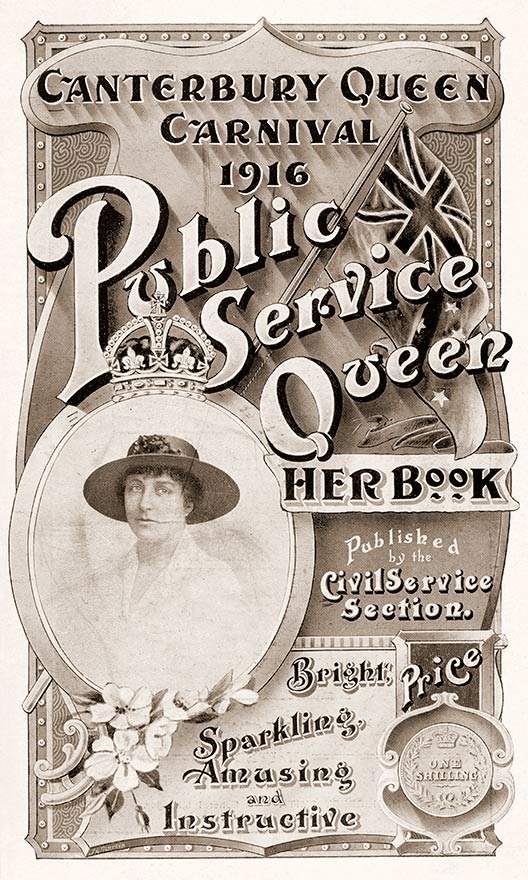
Thirty-nine-year-old Isabella Palmer was one of eight women nominated for election as the Queen of Canterbury in January 1916. The candidates were not ‘beauty queens’ in the modern sense, but figureheads for a section of the community – trade and industry, professions and commerce, wholesale and retail, the various suburbs encircling Christchurch city. An industrious campaigner for patriotic causes, wife of Dr James Palmer and mother of one, Isabella was nominated as ‘Public Service Queen’ – the candidate representing public servants and local-body employees.
The organising committee hoped that the Canterbury Queen Carnival, like its Auckland and Wellington predecessors, would raise a significant sum for the relief of soldiers and their dependants. They hoped to raise £100,000 by charging threepence for each vote. The winning candidate would be the one who raised the most money.
Palmer and her fellow queens spent a feverish three months moving between fetes, garden parties, concerts, plays, cooking competitions, athletic events, art unions, and a bewildering array of other events. A flag representing each candidate was hoisted in Cathedral Square each morning, their positions on the pole reflecting their current ranking. The total number of votes and overall total raised were chalked up on a signboard, but the total raised in the name of each candidate was withheld. Observers were stunned by the rapidity of the voting and the interest the ‘Queen Election’ generated. A million votes had been registered by mid-February, many through large individual and corporate donations.
A stream of decorated cars drove into Christchurch city on the afternoon of 29 April 1916. The parade celebrated the triumph of the Queen of the Hills, Miss M. Rutherford, who had raised a staggering £27,140, 20% of the £134,781 total. Palmer, feted by railway workers and telegraph operators, had initially made a strong showing, but she progressively dropped down the polls and finished in last place, having raised £8341. The first three places were taken by suburban queens, with the city votes split between occupational groups.
There were, presumably, far fewer public servants in Christchurch than industrial workers or suburban residents.

Community contributions